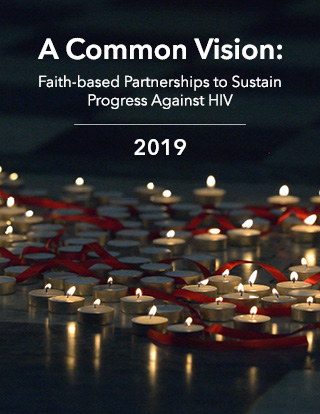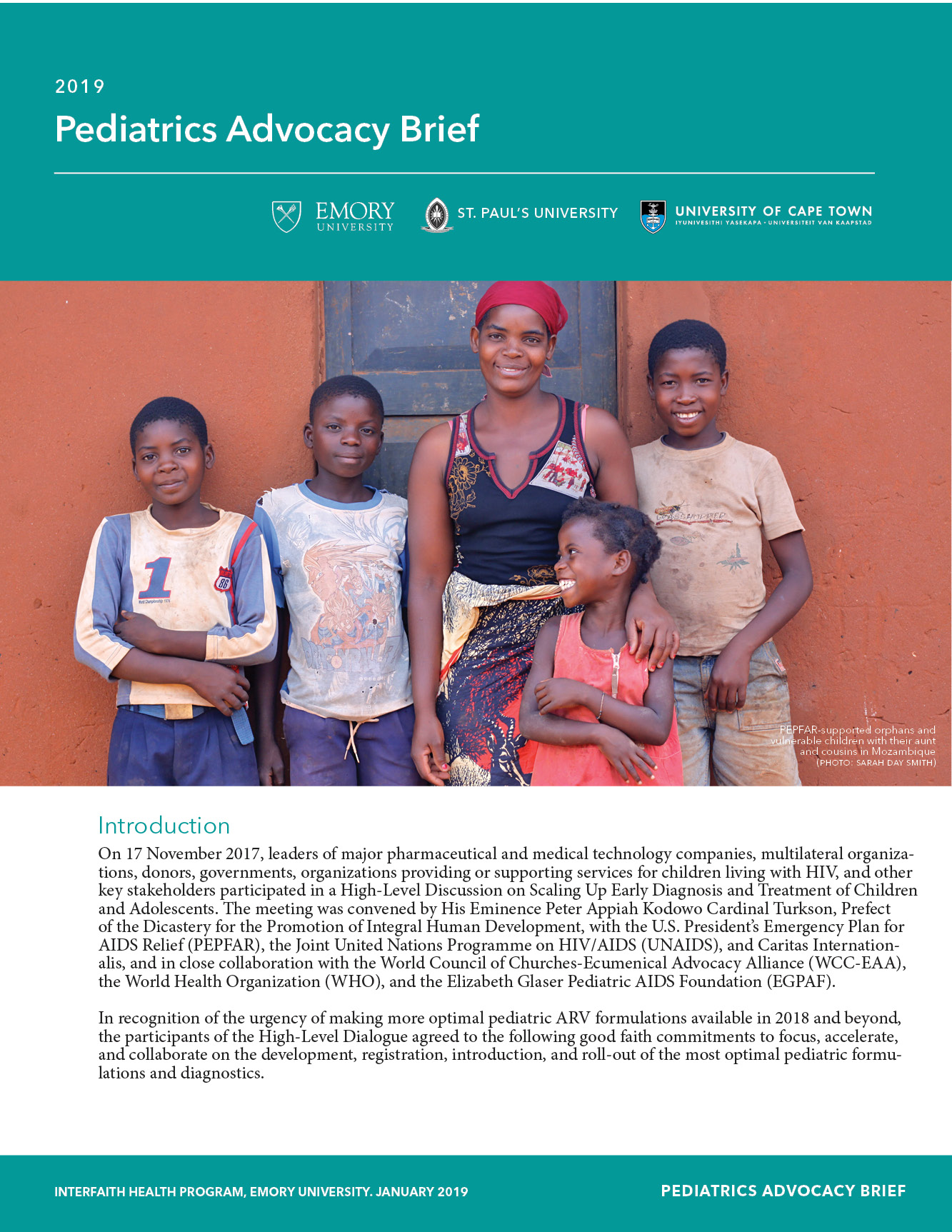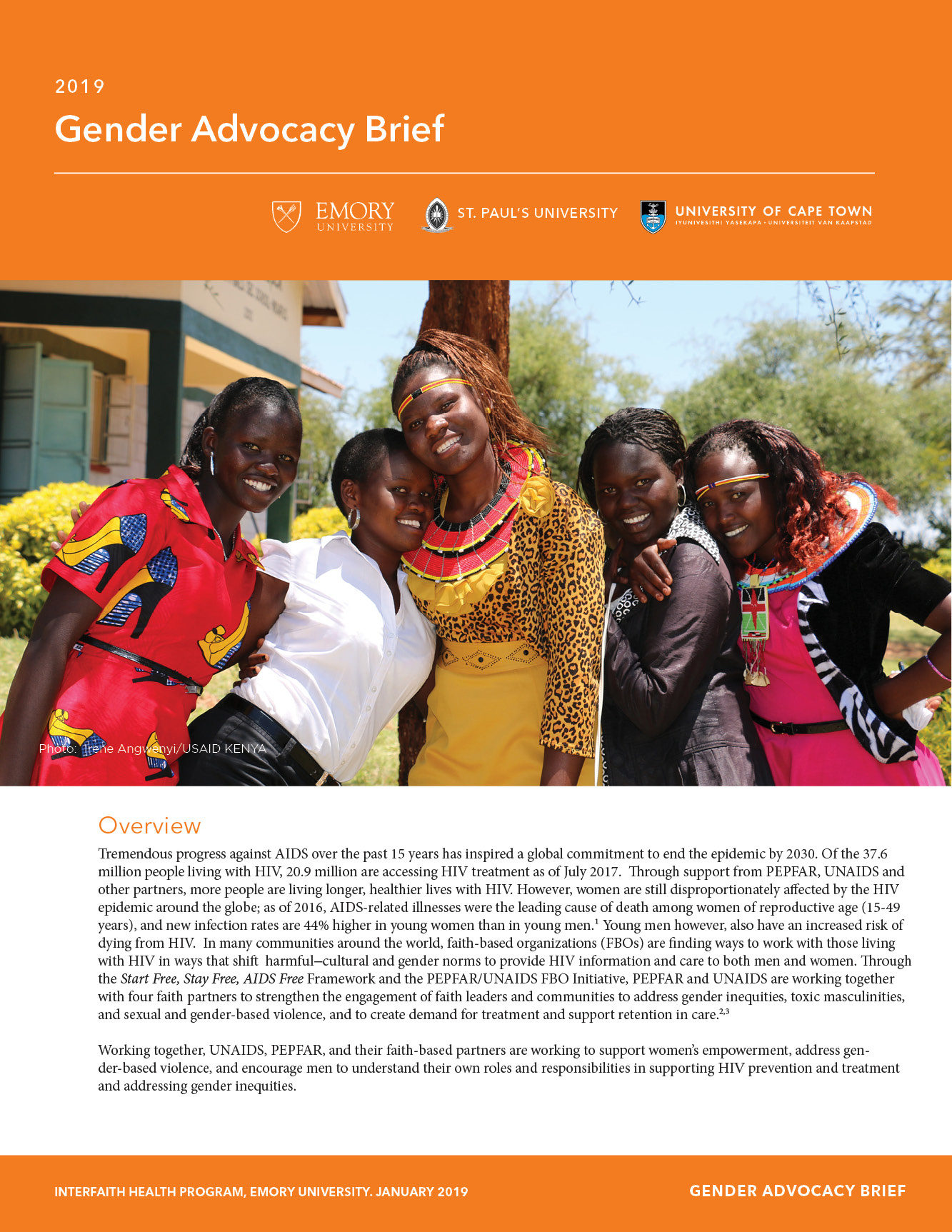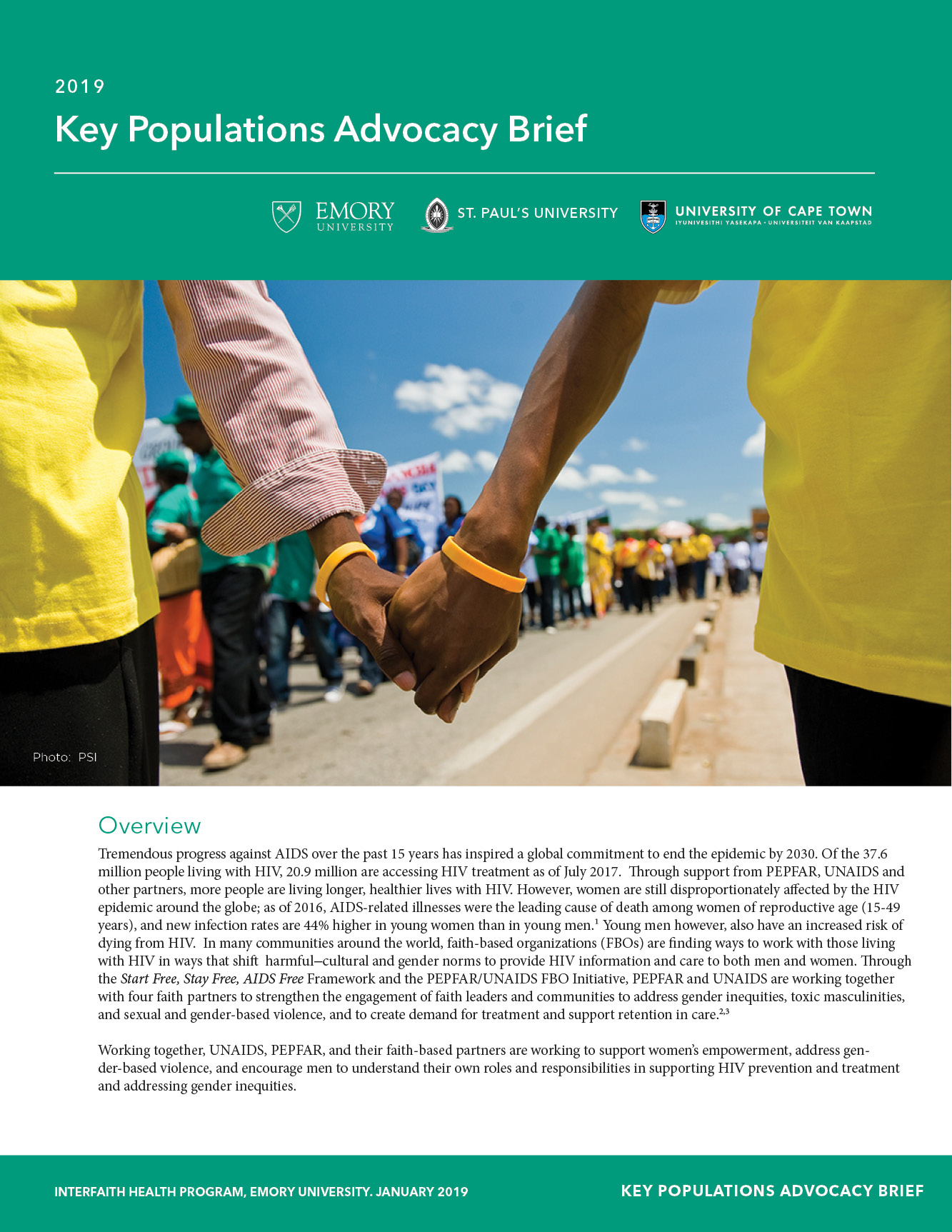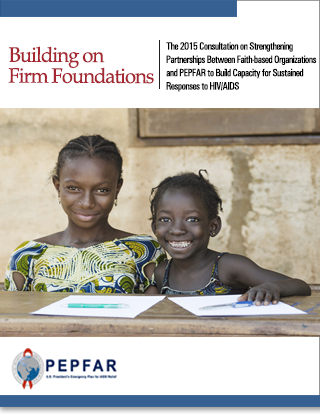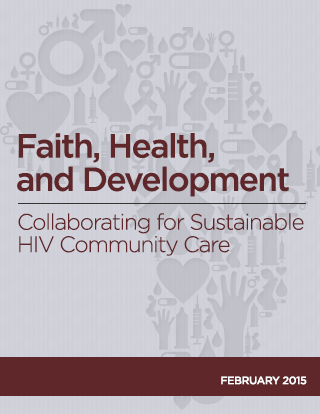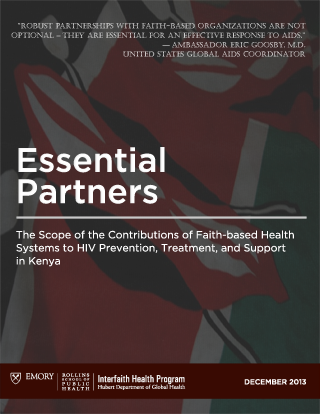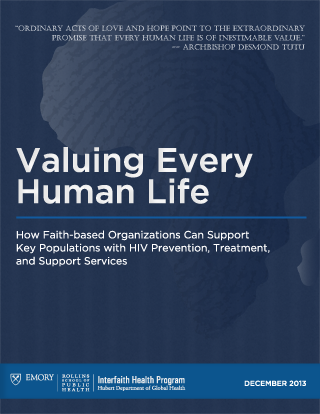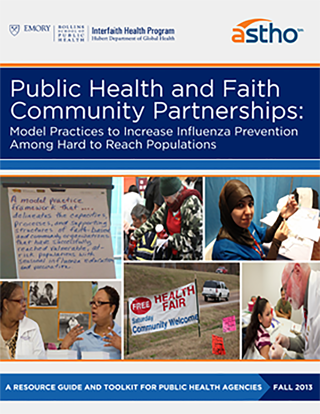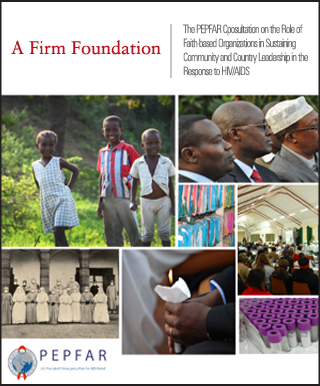IHP Reports
2019 A Common Vision: Faith-based Partnerships to Sustain Progress Against HIV
The U.S. President’s Emergency Plan for AIDS Relief (PEPFAR), together with the Joint United Nations Programme on HIV/AIDS (UNAIDS), launched an initiative in 2015 to strengthen collaboration with faith-based partners in response to The Lancet Series on faith-based health care and the UNAIDS The Gap Report. The purpose of the FBO initiative was scaling up partnerships with faith-based organizations (FBOs) and addressing issues highlighted as important by The Lancet Series and the The Gap Report. This report describes the work of the PEPFAR/UNAIDS FBO Initiative between 2015 and 2019, using these two documents as its framework.
2019 Pediatrics Advocacy Brief
This report is a work product of the PEPFAR/UNAIDS academic consortium.
In 2015, PEPFAR and UNAIDS launched a new initiative to strengthen the capacity of faith leaders and faith-based organizations (FBOs) to advocate for and deliver sustainable HIV responses. In recent years, investments in preventing mother-to-child transmission (PMTCT) of HIV have been successful in reducing the number of children born with HIV; however, the diagnosis and treatment for children who are living with HIV remains a major challenge.
The faith-based partners with whom PEPFAR and UNAIDS work have been and will continue to be essential to keeping children living with HIV connected to care as they transition throughout adolescence and young adulthood because these partners represent the largest non-governmental provider of pediatric HIV services and because they are linked to local places of worship whose presence in local communities is not tied to outside funders. The faith-based partners working alongside UNAIDS and PEPFAR have identified a number of activities to reach the global goal of ending the AIDS epidemic by 2030.
2019 Gender Advocacy Brief
This report is a work product of the PEPFAR/UNAIDS academic consortium.
Tremendous progress against AIDS over the past 15 years has inspired a global commitment to end the epidemic by 2030. Of the 37.6 million people living with HIV, 20.9 million are accessing HIV treatment as of July 2017. Through support from PEPFAR, UNAIDS and other partners, more people are living longer, healthier lives with HIV. However, women are still disproportionately affected by the HIV epidemic around the globe; as of 2016, AIDS-related illnesses were the leading cause of death among women of reproductive age (15-49 years), and new infection rates are 44% higher in young women than in young men.
Working together, UNAIDS, PEPFAR, and their faith-based partners are working to support women’s empowerment, address gender-based violence, and encourage men to understand their own roles and responsibilities in supporting HIV prevention and treatment and addressing gender inequities.
2019 Key Populations Advocacy Brief
This report is a work product of the PEPFAR/UNAIDS academic consortium.
Globally, key populations account for 40 percent of new HIV infections, even though they make up a much smaller proportion of the total population.1 The U.S. President’s Emergency Plan for AIDS Relief (PEPFAR) and the Joint United Nations Programme on HIV/AIDS (UNAIDS) identify key populations as: gay men and other men who have sex with men (MSM), people who inject drugs (PWID), sex workers (SWs), transgender persons (TG), and prisoners.
In an effort to support partnerships with faith-based organizations (FBOs), UNAIDS and PEPFAR are carrying out programs to sustain FBO’s contributions and increase their service capacity to ensure that FBOs are at the forefront of global efforts to end the AIDS epidemic by 2030.
Building on Firm Foundations: The 2015 Consultation on Strengthening Partnerships Between Faith-based Organizations and PEPFAR to Build Capacity for Sustained Responses to HIV/AIDS:
In May 2012, the U.S. President’s Emergency Plan for AIDS Relief (PEPFAR), in collaboration with St. Paul’s University (SPU) and Emory University’s Interfaith Health Program (IHP), hosted a consultation on the role of faith-based organizations (FBOs) in sustaining country and community leadership in the response to HIV/AIDS. Participants included faith leaders from Kenya, Rwanda, Tanzania, and Uganda. In April 2015, PEPFAR, SPU, and IHP once again convened FBO leaders in a consultation to review the recommendations made in the first meeting, further examine critical issues in addressing HIV/AIDS, share valuable insights from experiences in responding to HIV/AIDS, and to chart a path for future efforts. This report includes descriptions of key issues raised in the Consultation; the scope of contributions of faith-based partners to HIV service delivery; the important role of FBOs in achieving the ambitious program goals developed by PEPFAR, UNAIDS, and other global partners; and the finalized set of key recommendations developed at the 2015 Consultation. VIEW UNAIDS ANNOUNCEMENT»
Assets and Partnerships in Mukuru: A Report on Mukuru on the Move’s Work 2008-2012
The purpose of this report is to document and discuss the asset-based work of Mukuru on the Move (MOTM), a program developed in collaboration between the Interfaith Health Program (IHP) at Emory University, Atlanta, Georgia, USA and St. Paul’s University, Limuru, Kenya. This report analyzes work carried out by MOTM from 2008-2012, synthesizes and summarizes earlier reports, and describes findings from research carried out in Mukuru in 2012. The narrative that follows shows the evolution of the project and the diverse work of the MOTM team.
Faith, Health, and Development: Collaborating for Sustainable HIV Community Care
The Faith, Health Collaboration and Leadership Development Program (FHCLDP) is a multi-sector team-based model that builds partnerships among FBOs, HIV treatment programs, and civil society organizations to support sustainable, community-based HIV prevention and treatment services and to help people living with HIV remain in clinical treatment programs by offering coordinated community support services. The program was piloted in Nakuru County in 2014 with funding from the U.S. government’s President’s Emergency Plan for AIDS Relief (PEPFAR) in a collaboration between St. Paul’s University (Limuru, Kenya) and IHP.
Religion has been used to justify HIV stigma and discrimination but it can also be an important source to challenge such stigma and discrimination. The FHCLDP equips local leaders from faith-based, psychosocial, and clinical programs with knowledge and tangible, measurable activities to fight stigma and increase support services for those living with HIV. With the success of the FHCLDP, IHP is already working to collaborate with other colleagues in Kenya to expand the program to two other Kenyan counties next year and lay the groundwork to replicate the program in other countries as well.
Essential Partners: The Scope of the Contributions of Faith-based Health Systems to HIV Prevention, Treatment, and Support in Kenya
This report provides a thorough overview of the contributions of faith-based health systems and health facilities to the provision of HIV services in Kenya. The substantial contributions of faith-based health systems to healthcare services have been well-established; however the scope of those contributions is not known. This report describes findings from the study of the faith-based health sector in Kenya, details the quantitative contributions of that sector to HIV service delivery, and describes the unique role of trust in faith-based health systems.
Valuing Every Human Life: How Faith-based Organizations Can Support Key Populations with HIV Prevention, Treatment, and Support Services
Around the world, HIV prevalence rates for commercial sex workers (CSW), people who inject drugs (PWID), and men who have sex with men (MSM) outpace prevalence rates for the population as a whole. Religion has a complex effect for people in key populations in relation to HIV risk or HIV services. In order to address the complex influences of religion and support effective faith-based responses, this report contains eight key elements to guide collaboration between faith-based organizations and HIV programs.
Public Health and Faith Community Partnerships: Model Practices to Increase Influenza Prevention Among Hard-to-Reach Populations
IHP, in partnership with the Association of State and Territorial Health Officials (ASTHO), has published this resource guide and toolkit. The Model Practices Framework provides strategies to identify and engage faith-based organizations as partners in community health promotion and disease prevention outreach. Designed for both public health and religious leaders, the aims of the guide are to contribute to partnership-building capacity and to enhance the ability of public health to reduce the spread of influenza.
A Firm Foundation: The PEPFAR Consultation on the Role of Faith-based Organizations in Sustaining Community and Country Leadership in the Response to HIV/AIDS
On May 28-30, 2012, the U.S. President’s Emergency Plan for AIDS Relief (PEPFAR) organized a regional consultative forum in Limuru, Kenya, PEPFAR and Faith-Based Organizations: Partners in Sustaining Community and Country Leadership in Global HIV/AIDS. In collaboration with the Centers for Disease Control and Prevention (CDC) and St. Paul’s University in Limuru, Kenya, IHP convened representatives from Christian and Muslim faith-based organizations working in Kenya, Rwanda, Tanzania, and Uganda.

